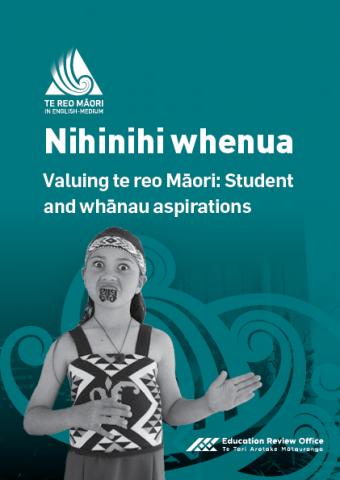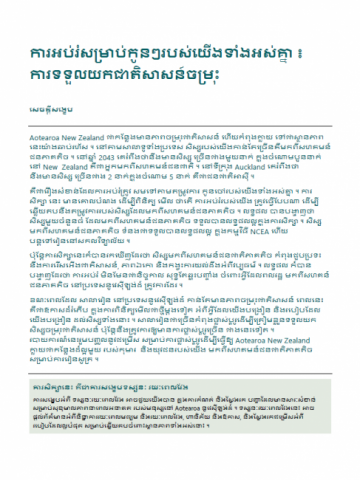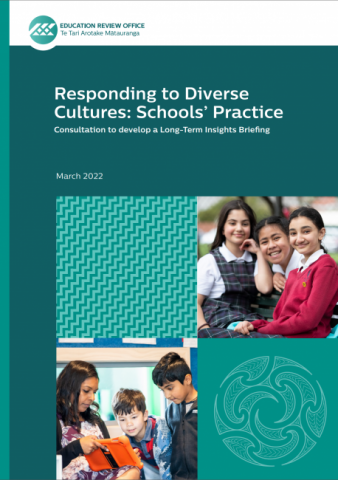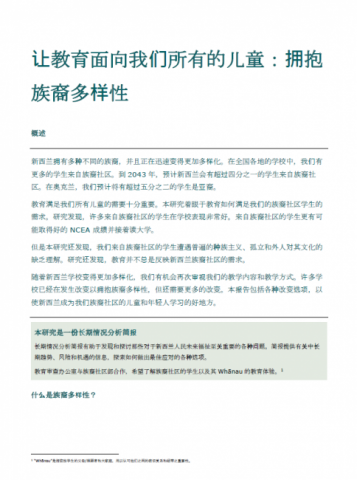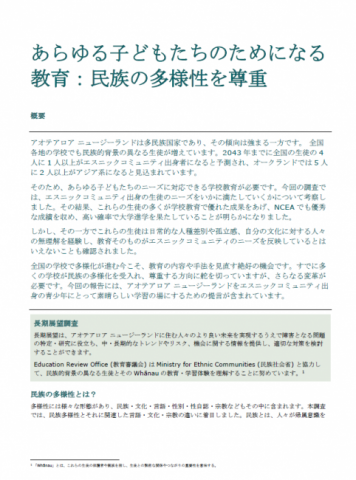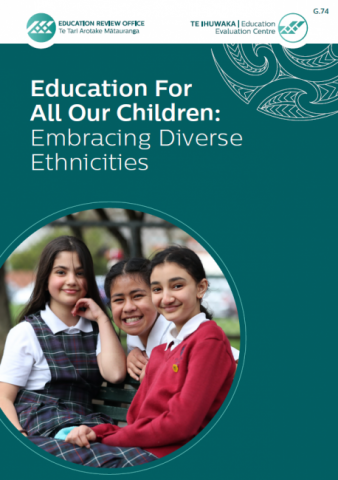Review of Ngā Pou Here: Te Pou Mātauranga me te Pou Tikanga Whakaako
Published: 17 May 2021
ERO has commissioned several discussion papers from an academic advisory group to assist with the review of its review framework, Ngā Pou Here. This paper provides commentary on two of the framework’s four po, te pou Mātauranga and te pou Tikanga Whakaako, with particular emphasis on assessment for learning.
- Audience:
- Academics
- Early learning
- Education
- Māori-medium
- Parents
- Schools
- Content type:
- Basic page

